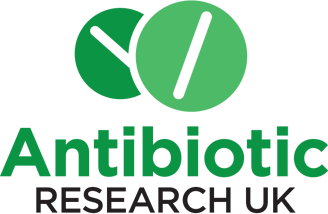 Seeing antibiotics dispensed without prescription in Hong Kong made Jill Rogers aware of antibiotic resistance – as far back as the 1970s.
Seeing antibiotics dispensed without prescription in Hong Kong made Jill Rogers aware of antibiotic resistance – as far back as the 1970s.
Now, the prospect of taking the drugs every day has prompted Jill to join our ranks. Read her say on what should be done to tackle antibiotic resistance:
“I became partially immunocompromised due to surgery, which included loss of my spleen. Since COVID- 19 started spreading in the UK, I have become more concerned about my health as I now depend on effective prophylactic (preventative) antibiotics which I may have to take for life.
Having had support from Antibiotic Research UK’s Patient Support service and read the stories of those living with antibiotic resistance, I wanted first to express my concern and sympathy for those who are currently suffering. This need not have happened if there had been sufficient care in the past in prescribing antibiotics and more research done into new treatments.
Seen in the 1970s
We have known about resistance since antibiotics started. When I worked in Hong Kong 1975 – 1977 where antibiotics could be bought over the counter with no prescription – we had cases of antibiotic resistance. These required significant surgery to eliminate the infections.
Governments need to facilitate research with use of tax-payers money. Charities like Antibiotic Research UK need to continue helping to make more people aware of the problem. Also, people who currently have issues with antibiotic resistance should show how serious the problem is.
The impact of losing my spleen
I am now at very high risk from encapsulated bacteria (of which bacterial pneumonia is one) as the spleen controls the immune response to these bacteria. I will have the normal (for my age etc.) response to the virus itself, but I am 70 next year so my immune system will not be as lively as when I was younger. However, it is the progress to bacterial pneumonia which is worrying for me personally. Also, the damage that long-term antibiotics may be doing to my immune system. It appears to be the pneumonia that kills if COVID-19 is not suppressed by the initial reaction of the immune system. I am therefore in three-month lockdown, or more until (if) we have a reasonably dependable vaccine.
Apart from my husband who is helping to shield me, I miss physical contact with the rest of my family. I am thankful for current social technology, but of course it is not the same. I was working in health care with close patient contact. At present, I cannot foresee returning for a long time, if at all, despite otherwise being physically fit. This makes me feel sad at times but that is balanced by my gratitude to be alive and the tremendous caring support I had in hospital.
Family rise to the challenge
My husband who is 70 has had to take on all external trips like shopping and my son is helping when he can. Thankfully, he is still working from home as is my daughter-in-law, but it is adding to their workload. Especially as I helped with the grandchildren. The children are also wanting physical social contact with us, but will my antibiotics work if I become infected and progress to pneumonia? I know I will want to take the risk eventually, but I also know it is not only me, as I could infect others.
Luckily, I am fairly resilient and not afraid as I have seen many health scares come and go in my lifetime. I will be sensible as far as current knowledge advises. However, I am on long-term prophylactic antibiotics to which the bacteria may become resistant and I ask is there a replacement? Are so many dying with COVID-19 because the antibiotics are not working if bacterial pneumonia follows? Why are we still over-prescribing what we have left just in case an antibiotic might work instead of testing its efficacy first? Will general life saving surgery and transplants have to cease if there are no antibacterials? What about long-term low-level antibiotics in the farming industry? Why isn’t more being done to tackle antibiotic resistance?
Wake-up call
I believe this pandemic may have provided a sense of urgency. It is a call to government and research institutions for new antibiotics/treatments for infections despite the cost. Poor health and loss of life does not come on its own as all governments are finding regarding this economic crisis, let alone the human loss with COVID-19. I can already see some bickering amongst various research groups and of course governments who often have tunnel vision. But, this current pandemic has at least got (some) people thinking and more importantly listening.
Many people are already suffering ongoing infections as no treatment is currently available. I hope this really is a wake-up call for greater research with the governments and tax-payers support.
Let us keep the government and research institutions awake and hope this pandemic reminds everyone how fragile life can be. My thanks go to Antibiotic Research UK for all they are trying to do.”
Jill is one of many patients currently being encouraged and cared for by our Patient Support programme.
If you are concerned about COVID-19 and antibiotic treatments, go to our Patient Support pages. Or, email patient.support@antibioticresearch.org.uk or telephone 07367 784114.
You can also find out more about our work to tackle antibiotic resistance HERE.
